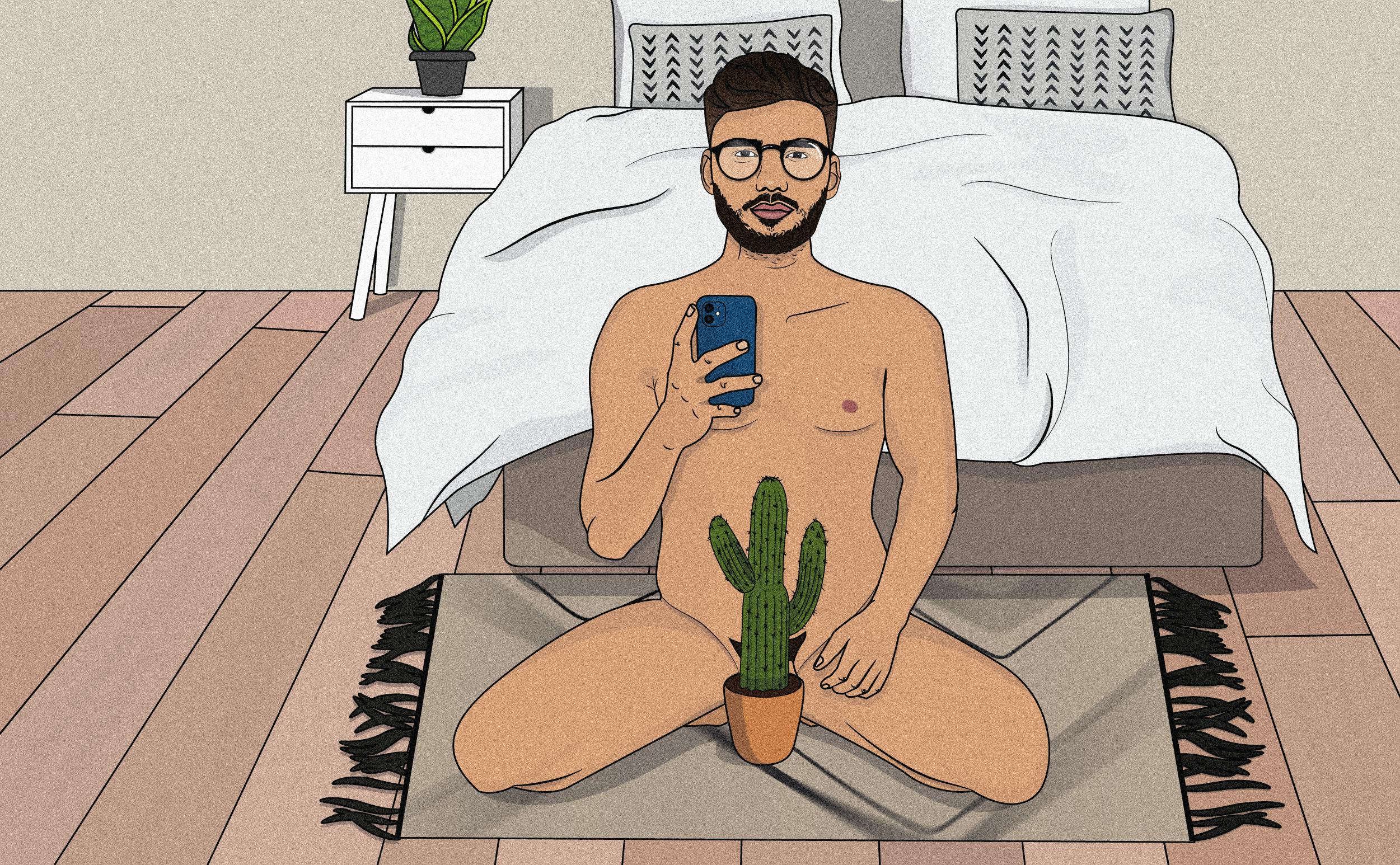Performance Anxiety & Delayed Ejaculation in Penis Owners
Performance Anxiety & Delayed Ejaculation in Penis Owners
How to help yourself or your partner overcome performance anxiety
How to help yourself or your partner overcome performance anxiety
A young and spritely 20-something year old (assigned male at birth) is probably the last person you’d expect to have any issues ejaculating, right? Not so uniquely, however, until about a year ago I suffered from delayed ejaculation as a result of performance anxiety.
Delayed ejaculation refers to the difficulty or inability to ejaculate as a result of performance anxiety or a functional issue. While I was able to orgasm, it was difficult to ejaculate, and the fear that I wouldn’t cum made it more nerve-wracking each time I found myself with a partner.
Performance anxiety is increasingly common amongst young people, most likely due to an influx of not-so-great messages from media and society about masculinity, femininity, and what sex “should be like”. These negative messages can give us unreasonable expectations about our bodies and lead us to be more performative in sex, rather than present and embodied. Performance anxiety can manifest itself physically in penis-owners in the form of erectile dysfunction (ED), premature ejaculation, or delayed ejaculation, to name a few common symptoms.
How can we step out of shame and feelings of inadequacy into feeling present in our bodies, worthy, and enough?
"Performance anxiety is increasingly common amongst young people, most likely due to an influx of not-so-great messages from media and society"
Erectile Dysfunction and Other Functional Challenges
Erectile Dysfunction (ED) occurs when there is a disruption, mental or physical, in the processes of getting an erection. It’s important to recognise that while performance anxiety and mental health can be contributing factors, ED can also be caused by physical factors such as chronic illness, hormones, smoking, substance abuse, injury, nerve damage, etc. Certain hormone-disrupting medications can also cause erectile dysfunction. If you think you might be experiencing ED due to a health problem, you should consult with a physician to find a treatment that’s right for you.
However, we can’t discount the effects of mental health on erectile function. Mental and emotional causes for ED are very common, particularly in younger folks. Though I never suffered from ED, one way that I knew that my issue with delayed ejaculation was not a physical issue, but a mental issue, was that I was able to ejaculate on my own but struggled with a partner. This made it evident to me that there was mental and emotional work to be done, rather than an unaddressed physical health issue.
Some mental health issues that can contribute to dysfunction include:
- Performance anxiety
- Poor body image
- Lack of self-confidence
- Depression & anxiety
- Stress
- Disinterest
"How can we step out of shame and feelings of inadequacy into feeling present in our bodies, worthy, and enough?"
Understanding Orgasm vs. Ejaculation in Folks with Penises
When someone with a penis talks about “cumming” there is usually no distinction between orgasm and ejaculation. This makes some sense as in reality, orgasm and ejaculation usually happen around the same time; but they are, however, not the same.
Orgasm refers to the peak of increased blood flow, pleasure, relaxation, and emotion in the sexual response cycle. Ejaculation, more simply, refers to the expulsion of semen from the penis. Some people with penises can have multiple orgasms before or without ejaculation, without a refractory period (the time one needs to recoup after ejaculating). It is also possible to ejaculate without orgasm.
I tell you all of this to say that sometimes cumming doesn’t always look like the typical orgasm/ejaculation combo, and sometimes you don’t cum at all—and that is okay. You and your pleasure are more than just an orgasm; and an orgasm is not the gold star that makes for good sex. If you and your partner(s) are enjoying yourselves along the way, that is what’s important.
"You and your pleasure are more than just an orgasm; and an orgasm is not the gold star that makes for good sex"
Overcoming Performance Anxiety
The key to overcoming performance anxiety is learning to love and be kind to yourself.Overcoming performance anxiety is a slow process that begins with deconstructing negative ideas we have about ourselves, as well as divesting interest in what society tells us sex “should be like,” and rather focusing on being present and on our right to pleasure. The sooner we are able to begin letting go of the plot lines we have in our heads about sex and how our partner will perceive us, the sooner we can enjoy sex more thoroughly.
Tips for getting out of your head and into your body during sex:
Be here now. Be intentional about the sex that you are having and draw attention to your breath. When you feel your mind begin to wander, acknowledge that with compassion and simply refocus on the breath to anchor you back into the fun.
Take time to be sensual! Focus on how you are experiencing the sights, smells, sounds, tastes, and touch of sex. Allowing yourself to get lost in your senses will help you feel more connected to your body and build your desire. If you or a partner is having a hard time becoming erect, focusing on stimulating the senses is a great way to redirect the fun without accidentally causing shame by over-focusing on an erection.
It's not all about orgasm. As I mentioned before, orgasm (while amazing) should not define your sexual experience. Everything in between matters just as much.
Love yourself. Practicing being in your body and exploring your sensuality does not need to be limited to sex. Find practices that get you more connected to your body on the regular like exercise, dance, yoga, meditation, hygiene rituals, masturbation, etc. Speak words of affirmation to yourself and maybe even write them down and put them in a place where you can see them often.
You are not broken, my friend. Performance anxiety and ED can affect all sorts of people at any age. Just because you may be struggling with performance anxiety now does not mean that you always will. What is important at the end of the day is that you understand that you are worthy, your pleasure matters, and you don’t have to face it alone. Remember: pleasure is a journey, not a destination.
About Gavriel Chichester:

Gavriel Chichester
Gavriel Chichester is a sexual wellness educator who teaches to empower, as well as mindfully facilitates and holds intentional space for sexual healing for individuals and communities. Their mission is to equip you with tools that you can revisit time and time again in order to do the necessary work of healing and self-love, guiding you towards a path of liberation and a state of holistic wellness that rebirths light and joy in your life. Gavriel is currently pursuing a Masters in Public Health at the University of Haifa.
Visit Gavriel's website or follow them on Instagram & Facebook.
- S
- SeanThanks for writing this article. It's nice to read more about the real male sexual experience and to see it framed in such a positive, constructive perspective
GET A FREE MOVIE
- S
- SeanThanks for writing this article. It's nice to read more about the real male sexual experience and to see it framed in such a positive, constructive perspective
















